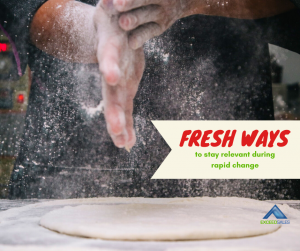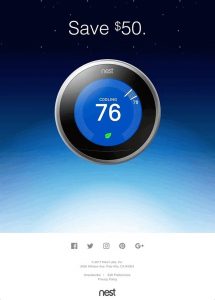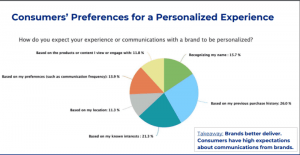by Laurie Sullivan, Staff Writer @lauriesullivan, November 2, 2016
Capturing consumer data without using it to personalize messages should become a “cardinal sin” because it alienates existing and potential customers and limits their desire to share more, according to the first annual L2 Intelligence Report: Data & Targeting 2016.
The average brand collects 11 points of data from consumers, 70% of which are optional, according to the report. The travel industry collects 22 points of data; department stores, 14; beauty and big-box retailers, each 12; active wear, 9, apparel, 8, and home, 7.
The findings evaluate the approach and performance of 106 consumer brands across seven verticals on data capture, personalization, targeting, and loyalty.
The report suggests travel brands ask consumers to customize an average of 15 data points in their accounts in addition to the five mandatory and three optional data points requested during signup.
Department stores, beauty brands, and big-box retailers also provide above-average account customization. Many department stores request clothing sizes or email content preferences, while beauty brands focus on a consumer’s physical attributes and product preferences.
Apparel and home brands average just four additional account customization options. Some of these brands, like such as West Elm and Williams-Sonoma, have chosen to invest in personalization based on site behavior rather than information provided by the customer.
Lancome’s user account includes a beauty profile that asks consumers 22 questions, including physical characteristics such as eye and hair color, but the brand also asks consumers about their beauty habits to understand makeup expertise, current beauty routine, and favorite beauty styles.
Many targeting efforts have not been stifled due to a lack of effort, but by the sheer weight of operational challenges that deploying these efforts entail, says the report, which points to a variety of efforts from better data collection to onsite personalization that companies can focus on to improve targeting and personalization.
For starters, mobile apps should include personalization features. Ones that already use this feature receive higher average reviews and ratings, typically 3.6 stars out of five stars, vs. 3 stars for those apps that do not emphasize personalization.
Transparency is also important. Nearly 60% of consumers report that they are more willing to share information with a brand if the company receiving the data is the only one using it, and 52% of consumers state they would share information if the brand is very clear on how it uses the information, per the report, citing Gigya data. Nearly one-third of consumers said they would share data if they receive something in return.
The report also warns of the failure to close the loop and inability to latch on to low-hanging fruit in email campaigns. Seventy-eight percent of consumers expect retailers to personalize email marketing, compared with four in 10 that expect a personalized site experience, and less than one-third of consumers that expect personalized desktop and mobile ads.
MediaPost.com: Search Marketing Daily
(22)
Report Post







